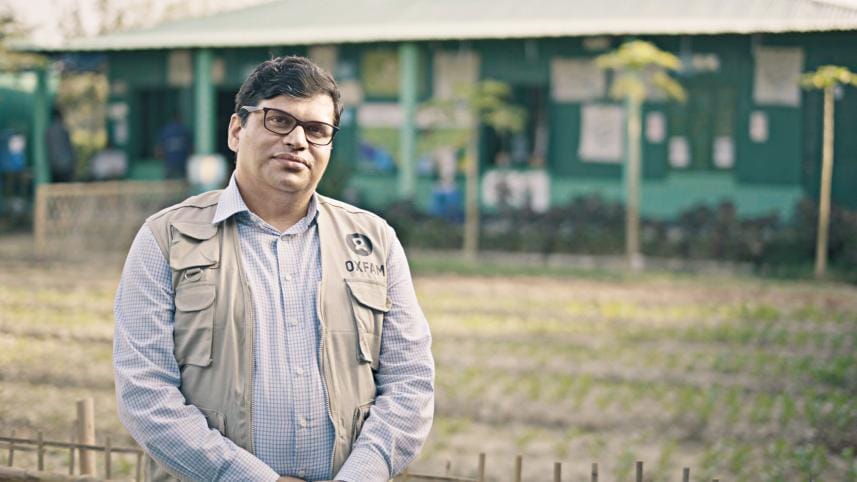“Minimum funding for Rohingyas must be met”

The Daily Star (TDS): How do you evaluate the current global response to the Rohingya crisis?
Ashish Damle (AD): The Rohingya refugee issue is a protracted crisis, which has a 30-year history beginning with the establishment of the first camp. Right now, the crisis is under the shadow of the Russia-Ukraine war, high growth of inflation and post-Covid impact. Therefore, the kind of funding that was available in 2017 or 2018 has reduced for lack of overall response.
It is also evident that there is no long-term solution that is coming any time soon. It is very unrealistic to expect continuous full-fledged support from Bangladesh's government. At the same time, keeping these almost 1 million people without any support is also inhuman.
The issue is not only affecting any particular entity, but also everybody associated with it (INGOs, Bangladesh and the affected community). Therefore, it is important that all stakeholders come together to find a collaborative solution.
The Rohingya refugee crisis got huge exposure in the international media and global platforms back in 2018-19, when it was a part of standard discussion. For example, the issue was raised by the United Nations General Assembly and World Economic Forum. But now, we observe that this particular crisis is receiving the least attention.
Although it is a large-scale humanitarian response, it has its own limitations, and it may not continue in the same fashion as it was in the past.
TDS: How is the gradual decrease in funding impacting the Rohingya humanitarian responses?
AD: When funding is restricted, the response needs to focus on top priorities such as food, shelter, clothing and health. For example, the way multiple agencies were working earlier on addressing the issues related to gender-based violence, child protection, safe places, awareness creation, engaging youths, hygiene and other aspects of development are now impacted due to decreasing funds.

A lot of young people in Rohingya camps are now literally idle without having any productive engagement. The opportunities for productive engagement of such people had some positive impacts within the community in terms of having perspectives about living life peacefully. Besides, the number of agencies that would employ them as volunteers has drastically reduced now.
As a result, the rate of criminal activities, substance abuse and level of violence have increased, making Rohingya camps more and more insecure. This trend will only grow because the support system that has been created through that additional funding will get compromised in a new scenario.
TDS: The Rohingya refugee issue is a long-term crisis. What should be done to solve this?
AD: This is an international issue. When two countries are unable to resolve it, then it has to go to the international platform. The international community also has equal responsibility towards this 1 million plus population.
It is an issue that cannot be resolved in an immediate timeframe of six months or one year. So, we have to make sure that the minimum funding requirement for Rohingya refugees must be met. Even the government needs to have assured support from the international community for a particular timeframe, and that timeframe needs to be negotiated collectively. Unless and until that clarity is there, it becomes very difficult to manage the humanitarian response.
The interview was taken by Saudia Afrin



 For all latest news, follow The Daily Star's Google News channel.
For all latest news, follow The Daily Star's Google News channel.
Comments